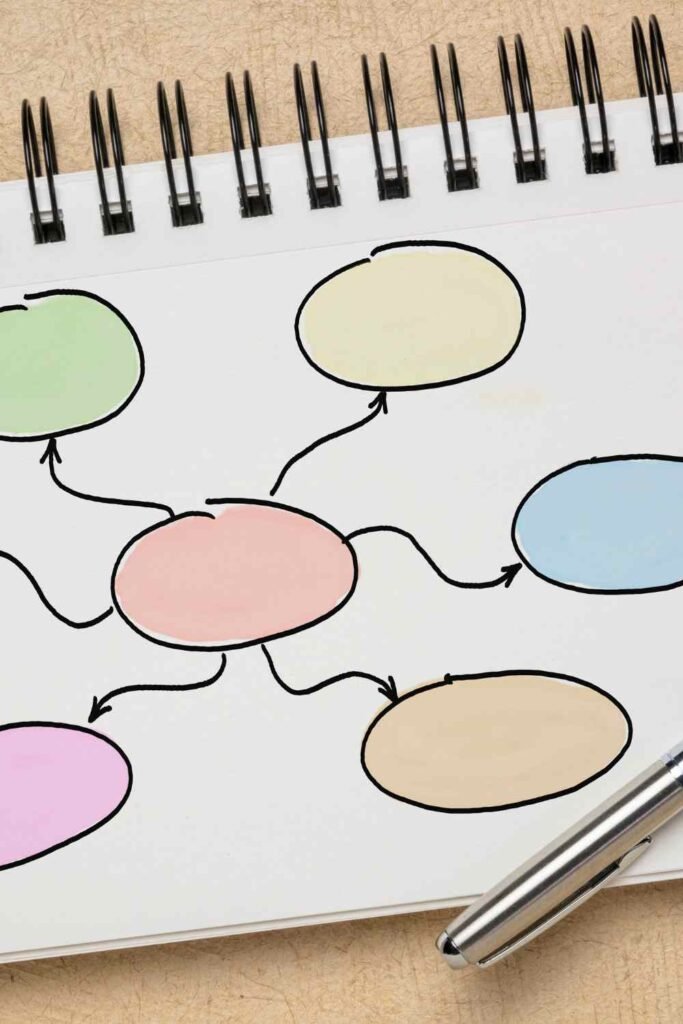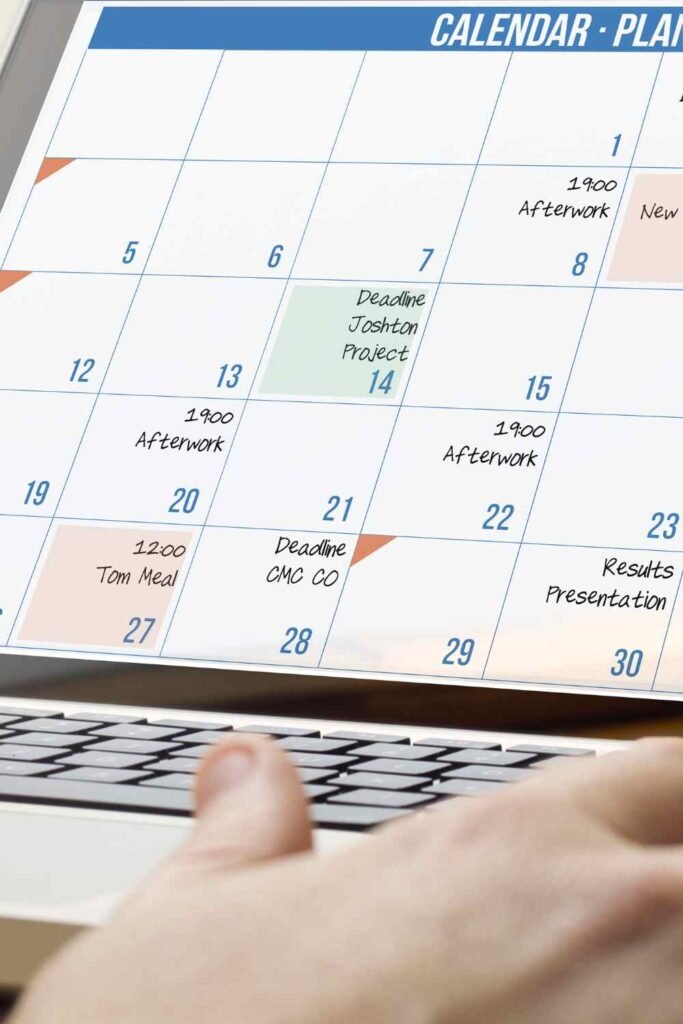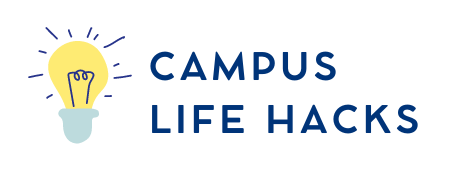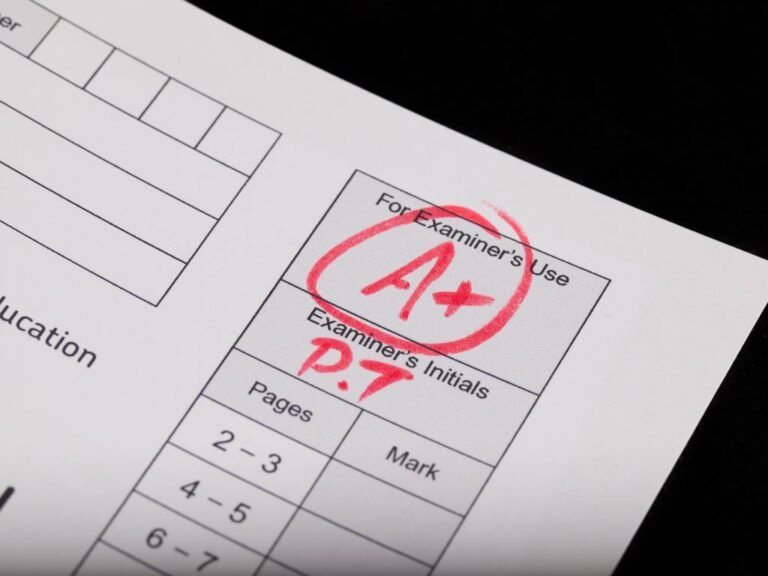30 Study Hacks That Actually Work

If you’ve ever searched for “study hacks that actually work,” you’ve come to the right place!
With exams and deadlines constantly looming, students are always on the lookout for ways to study smarter—not harder. I know I used to be! When I was in school, I used to think that there MUST be hacks why some of my classmates got higher grades than the rest of us.
I spent hours trying to research the best strategies, and even supplements! Over time, I learned that there is no special secret. It all boils down to balance and consistency.
This guide breaks down 30 proven strategies (or study hacks) to help you stay focused, retain information, and reduce stress.
Make sure to go through them all, and pick the ones that align with your personality, goals, and lifestyle. You won’t be able to apply everything for sure, but implementing at least some is enough.

Table of Contents
- 1. Create a Dedicated Study Space
- 2. Use the Pomodoro Technique
- 3. Leverage Active Recall
- 4. Take Advantage of Spaced Repetition
- 5. Optimize Your Note-Taking
- 6. Teach What You Learn
- 7. Use Mnemonics
- 8. Summarize Key Points
- 9. Study During Your Peak Hours
- 10. Try the Feynman Technique
- 11. Turn Lessons into Stories
- 12. Create Visual Mind Maps
- 13. Avoid Multitasking
- 14. Use Flashcards Effectively
- 15. Stay Hydrated and Eat Brain Foods
- 16. Break Big Goals into Smaller Steps
- 17. Use White Noise or Study Music
- 18. Limit Social Media Distractions
- 19. Review Your Notes Before Bed
- 20. Take Regular Breaks
- 21. Use Apps to Stay Organized
- 22. Study with a Buddy
- 23. Practice Self-Quizzing
- 24. Keep a Study Planner
- 25. Reward Yourself
- 26. Focus on Understanding, Not Memorizing
- 27. Use Highlighters Strategically
- 28. Practice Exam Questions
- 29. Stay Consistent
- 30. Don’t Forget Self-Care
- Final Thoughts
1. Create a Dedicated Study Space

Having a specific place for studying can help you associate that environment with productivity. Choose a quiet area, organize your materials, and eliminate distractions.
Bonus tip: Make sure it’s well-lit and comfortable but not so cozy that you’re tempted to nap. Usually, if a room is too hot or too cold, you can easily doze off.
So make sure you choose a place that has a comfortable temperature.
Actionable Tips:
- Use noise-canceling headphones if your environment isn’t perfectly quiet.
- Keep all your study supplies within arm’s reach to avoid unnecessary interruptions.
- Personalize your space with motivational quotes or pictures to inspire you.
2. Use the Pomodoro Technique

This time management method involves studying for 25 minutes, followed by a 5-minute break.
After four cycles, take a longer 15-30 minute break. It’s perfect for maintaining focus without burnout.
Actionable Tips:
- Use a physical (and aesthetic) timer or an app like Focus Keeper to stick to the intervals.
- During breaks, do something relaxing like stretching or deep breathing.
- Customize the length of your study and break intervals based on what works best for you.
3. Leverage Active Recall

Instead of passively rereading notes, actively test yourself.
Write down questions from your study material and attempt to answer them without looking. This technique strengthens memory and improves retention.
Actionable Tips:
- Create flashcards with questions on one side and answers on the other.
- Use past exam papers to simulate test conditions.
- Practice explaining answers out loud as if you’re teaching someone.
4. Take Advantage of Spaced Repetition

Revisiting material at increasing intervals helps embed it in your long-term memory.
Apps like Anki or Quizlet make it easy to schedule these reviews.
Actionable Tips:
- Review material 1 day, 3 days, and 7 days after learning it.
- Combine this method with flashcards for maximum efficiency.
- Use digital tools to automate your review schedule.
5. Optimize Your Note-Taking

Forget copying everything verbatim.
Use systems like Cornell Notes or outline format to capture the main ideas.
If you’re confused or clueless on what Cornell Notes is, basically, it’s a systematic note-taking method designed to help students organize and review information effectively.
When writing on a page, divide it into three sections: a narrow column for keywords or questions, a wider column for detailed notes, and a summary area at the bottom for condensing the main ideas.
Highlight key points and leave space for additional insights later.
Actionable Tips:
- Rewrite messy notes neatly after class to reinforce the material.
- Use abbreviations and symbols to save time while taking notes.
- Review your notes within 24 hours to enhance retention.
6. Teach What You Learn

Explaining concepts to someone else is one of the best ways to solidify your understanding. Even if you don’t have an audience, pretend to teach an imaginary class.
I like to teach my dogs the concepts because even though they can’t understand, their reactions can sometimes be hilarious!
Actionable Tips:
- Pair up with a study partner and take turns teaching each other. You can even ask your roommate if he or she is free.
- Record yourself explaining a topic and listen to it later for feedback.
- Use a whiteboard to visually illustrate your explanations.
7. Use Mnemonics

Mnemonics are memory aids that simplify complex information. For example, use acronyms like HOMES to remember the Great Lakes (Huron, Ontario, Michigan, Erie, Superior).
When I was in law school, I had to memorize a ton of elements and exceptions for each crime. I would create mnemonics to memorize them, then in my head, I would connect the name of the crime to the mnemonic. So if I could remember the mnemonic the crime was paired with, I could easily recall the elements.
Actionable Tips:
- Create rhymes or songs to remember lists.
- Use imagery—associate words or concepts with vivid mental pictures.
- Invent your own acronyms tailored to the material you’re studying.
8. Summarize Key Points

After each study session, summarize the key takeaways in your own words. This reinforces what you’ve learned and highlights gaps in your understanding.
I’m more of a vocal learner—which means that I can easily remember things once I say them out loud. So after learning something new, I would repeat it three times out loud and doing this makes it harder for me to forget.
Actionable Tips:
- Keep a separate notebook for your summaries.
- Use bullet points to make your summaries concise and clear.
- Regularly review your summaries to keep the material fresh.
9. Study During Your Peak Hours

Some people are morning learners, while others focus better at night. Identify your peak productivity hours and plan your study sessions accordingly.
Mine was definitely at night. But if I wanted to reinforce what I learned, I would go to bed early, wake up at 5 am, and review then.
Actionable Tips:
- Experiment with different study times to find your optimal schedule.
- Use peak hours for challenging tasks and less productive times for review.
- Track your energy levels throughout the day to identify patterns.
10. Try the Feynman Technique

Named after physicist Richard Feynman, this technique involves simplifying concepts as if you were teaching them to a child. This helps identify areas where your understanding is weak.
Actionable Tips:
- Write out your explanation in simple language.
- Use analogies and examples to clarify complex ideas.
- Refine your explanation until it’s clear and straightforward.
11. Turn Lessons into Stories

Storytelling engages your brain more than dry facts. Try to weave information into a narrative to make it more memorable.
For example, say that I had to memorize the 10 best brain foods to improve your memory. I would imagine walking down a grocery lane and picking the food items one by one.
Actionable Tips:
- Create fictional characters or scenarios to explain concepts.
- Relate new material to personal experiences or historical events.
- Use storytelling apps to practice crafting narratives.
12. Create Visual Mind Maps

Mind maps are a great way to organize information visually. Start with a central idea and branch out with related concepts.
You may need to utilize pen and paper for this, but there are now online tools like my personal favorite—Notion.
You can try Notion for FREE here.
Actionable Tips:
- Use color-coding to differentiate branches.
- Include images or symbols to enhance understanding.
- Use digital tools like MindMeister for clean and shareable maps.
13. Avoid Multitasking

Switching between tasks reduces efficiency and comprehension. Focus on one subject or task at a time for better results.
When exam week is approaching, prepare for it weeks in advance by allocating an hour or two for a certain subject before moving on to the next one.
You can utilize Notion to schedule your study plans in advance.
Actionable Tips:
- Use the “single-tasking” method to dedicate blocks of time to specific tasks.
- Turn off notifications and close irrelevant tabs on your computer.
- Keep a to-do list to prioritize tasks and avoid switching.
14. Use Flashcards Effectively

Flashcards are a classic tool for memorization. Write questions on one side and answers on the other. Shuffle them to ensure you’re not just memorizing the order.
Actionable Tips:
- Group flashcards by topic or difficulty.
- Review harder cards more frequently using spaced repetition.
- Add diagrams or examples to cards for complex concepts.
15. Stay Hydrated and Eat Brain Foods

Your brain performs best when you’re hydrated and well-fed. Include foods like blueberries, nuts, and dark chocolate in your diet for a cognitive boost. Be sure not to eat too much sugar though as this can lead to a sugar rush and unhealthy sugar spikes.
Actionable Tips:
- Keep a water bottle on your desk and set reminders to drink.
- Plan healthy snacks for long study sessions.
- Avoid sugary drinks and junk food, which can cause energy crashes.
16. Break Big Goals into Smaller Steps

Large tasks can feel overwhelming. Divide them into manageable chunks and focus on completing one at a time.
I used to be a professional crammer in college, but when I hit law school, I found that I performed better if I would prepare for an exam days in advance as compared to chugging everything in one go the day before.
Utilizing tools like Google Calendar and Notion are completely free and help you stay on schedule.
Actionable Tips:
- Utilizing tools like Google Calendar and Notion are completely free and help you stay on schedule.
- Set specific deadlines for each step.
- Celebrate small wins to stay motivated.
17. Use White Noise or Study Music

Background sounds like white noise or instrumental music can help you stay focused. Avoid songs with lyrics, as they can be distracting.
Actionable Tips:
- Try apps like Noisli for customizable white noise.
- Explore playlists like “Lo-fi Beats” on Spotify or YouTube.
- Use headphones to block out external noise.
18. Limit Social Media Distractions

Social media can derail your productivity. Use apps like Forest or StayFocusd to block distracting websites during study time.
Actionable Tips:
- Schedule specific times for social media breaks.
- Turn off notifications on your phone and computer.
- Use “Do Not Disturb” mode while studying.
19. Review Your Notes Before Bed

Studies show that reviewing material before sleep improves retention. Take 10 minutes to skim your notes before turning in for the night.
Actionable Tips:
- Highlight areas you struggled with for extra focus the next day.
- Use a bedside notebook to jot down last-minute thoughts or questions.
- Keep it short—don’t overwhelm yourself before bed.
20. Take Regular Breaks

Your brain needs rest to process information. Follow the 50/10 rule: 50 minutes of focused work followed by a 10-minute break.
Actionable Tips:
- Set a timer to ensure you stick to the schedule.
- Use breaks to move around or stretch.
- Avoid using breaks to scroll through social media—it’s not relaxing!
21. Use Apps to Stay Organized

Apps like Notion, Evernote, or Google Keep can help you organize your study schedule, track progress, and store important notes.
Actionable Tips:
- Use templates to simplify your study planning.
- Sync your notes across devices for easy access.
- Set reminders for deadlines and review sessions.
22. Study with a Buddy

A study partner can keep you accountable and provide fresh perspectives on tricky subjects. Just make sure you stay on task!
Avoid pairing with your super close friends before your study appointment becomes one big gossip session—this happened to me so many times!
Actionable Tips:
- Set specific goals for each session to avoid wasting time.
- Quiz each other on difficult topics.
- Use video calls if you can’t meet in person.
23. Practice Self-Quizzing

Testing yourself regularly helps reinforce knowledge. Use practice questions or create your own quizzes based on your notes.
One of my favorite study tips is to get sample exams from the professor or teacher and practice the questions asked myself.
It would be better if the sample exams had answers too so you can tell where you went wrong.
Actionable Tips:
- Turn key concepts into multiple-choice questions.
- Use online quiz platforms for additional practice.
- Review incorrect answers to understand mistakes.
24. Keep a Study Planner

A planner helps you map out your study schedule, ensuring you cover all subjects without cramming.
You can choose simple undated planners like this one. Or if you prefer to keep things digitally, Google Calendar and Notion work well.
Actionable Tips:
- Color-code subjects to keep your planner visually organized.
- Include deadlines, review sessions, and break times.
- Update your planner daily to stay on track.
25. Reward Yourself

Set small rewards for completing tasks. This could be a snack, a walk, or an episode of your favorite show.
For me, it would be as simple as a cup of iced coffee or a 20-minute walk with my dog.
Actionable Tips:
- Choose rewards that don’t disrupt your study flow.
- Set larger rewards for bigger milestones, like finishing a project.
- Track your progress to make the rewards feel earned.
26. Focus on Understanding, Not Memorizing

Memorization has its limits. Aim to understand the “why” behind concepts for better long-term retention.
Actionable Tips:
- Ask yourself how each concept connects to the bigger picture.
- Use examples to see how theories apply in real life.
- Discuss complex topics with others to gain new insights.
27. Use Highlighters Strategically

Highlight key points sparingly. Over-highlighting can make your notes harder to review.
If you’re on the lookout for highlighters that look super pretty and don’t come in the typical yellow or orange neon colors, you’re going to love these.
Actionable Tips:
- Use different colors for main ideas, examples, and definitions.
- Highlight only after reading the entire section to avoid overdoing it.
- Combine highlighting with margin notes for context.
28. Practice Exam Questions

Simulating exam conditions helps you prepare better. Look for past papers or create questions based on your material.
Ask students from previous batches who may have had your current professor or teacher as theirs. They may be able to help you by lending or giving their notes or previous exam papers.
Actionable Tips:
- Time yourself to mimic actual exam conditions.
- Review answers to identify weak areas.
- Repeat the process regularly to build confidence.
29. Stay Consistent

Consistency always outshines cramming. Building a daily study routine helps you make steady progress and retain information more effectively.
In my experience, I performed best in exams when I knew I had prepared consistently—and you’ll feel that same confidence when you stick to a steady preparation schedule.
Actionable Tips:
- Set aside a specific time each day for studying.
- Create a routine that includes regular reviews and practice.
- Track your habits to stay motivated.
30. Don’t Forget Self-Care

Your mental and physical health play a huge role in academic success. Get enough sleep, exercise, and make time for relaxation.
I gained so much weight during the bar exam period that I couldn’t recognize myself anymore. My advice? Do not scrimp on self-care. Your body deserves to be taken care of—you only have one.
Actionable Tips:
- Schedule downtime in your planner.
- Practice mindfulness or meditation to manage stress.
- Stay connected with friends and family for emotional support.
You are now reading “30 Study Hacks That Actually Work” but you may also like…
Related Articles
50 Motivational Quotes for Students Taking Exams
How to Create a Study Space in Your College Dorm
Final Thoughts
Hope you found this blog post on the “30 Study Hacks That Actually Work” super helpful.
Sure you may not be able to implement all of them, but you should implement at least some so you can prepare well and ace your exams.
Remember, it’s not about studying harder but studying smarter. Goodluck!







